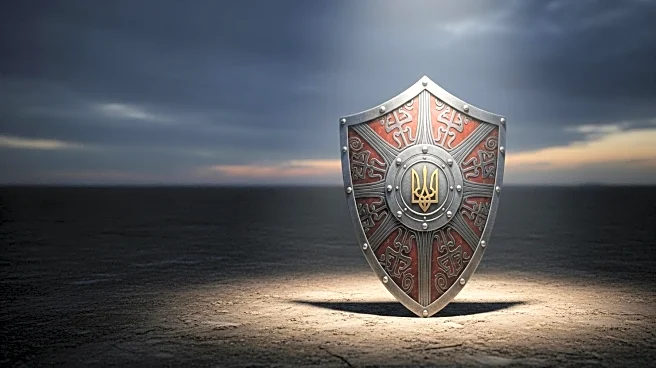What's Happening?
Arseniy Yatsenyuk, the former Prime Minister of Ukraine, has expressed skepticism about the effectiveness of Western security guarantees for Ukraine. Speaking at the Royal United Services Institute in London, Yatsenyuk argued that only NATO membership and the implementation of Article 5 could provide credible security for Ukraine. His comments come amid ongoing discussions about potential peace negotiations between Russia and Ukraine, brokered by the United States. Yatsenyuk's remarks highlight the challenges faced by European leaders in ensuring Ukraine's security, especially as Russia's military activities continue in the region. The former prime minister emphasized the importance of European allies providing the necessary resources for Ukraine to defend itself against Russian aggression.
Why It's Important?
Yatsenyuk's critique of Western security guarantees underscores the complexities of international diplomacy and defense strategies in the context of the Ukraine-Russia conflict. His insistence on NATO membership as the only viable security solution reflects broader concerns about the limitations of current Western support. This stance could influence U.S. and European policy decisions, potentially affecting military aid and diplomatic efforts. The situation also highlights the interconnectedness of European security, as the conflict's outcome could have significant implications for regional stability and the balance of power in Europe. The emphasis on NATO's role may prompt further discussions among member states about expanding the alliance's reach and capabilities.
What's Next?
As discussions about Ukraine's security continue, European leaders may need to reassess their strategies and commitments. The potential for increased military support, including the deployment of peacekeeping forces, could be explored. Additionally, the U.S. and its allies might consider bolstering Ukraine's defense capabilities through increased military aid and training. The ongoing dialogue about NATO membership for Ukraine could gain momentum, potentially leading to more formal discussions within the alliance. The outcome of these deliberations will likely shape the future of European security policies and the international community's approach to the Ukraine-Russia conflict.
Beyond the Headlines
Yatsenyuk's comments also raise questions about the long-term implications of security guarantees and alliances. The reliance on NATO highlights the importance of collective defense agreements in maintaining regional stability. However, it also points to the challenges of integrating new members into existing alliances, particularly in the face of geopolitical tensions. The situation in Ukraine serves as a reminder of the need for adaptable and robust security frameworks that can respond to evolving threats. This development may prompt broader discussions about the future of international security arrangements and the role of multilateral organizations in conflict resolution.









